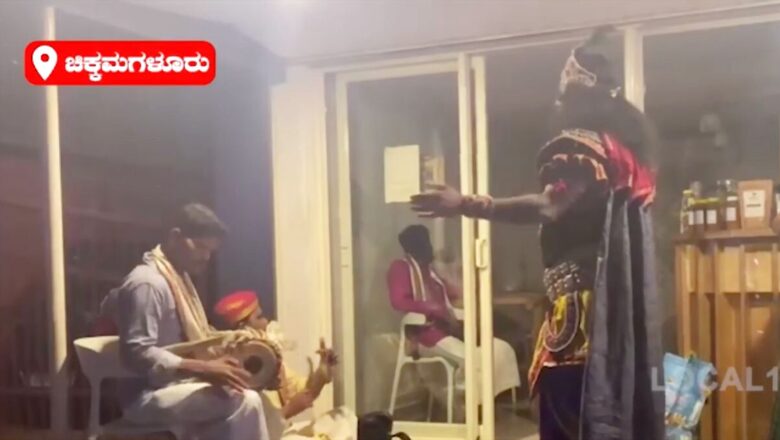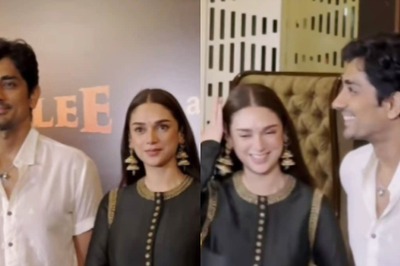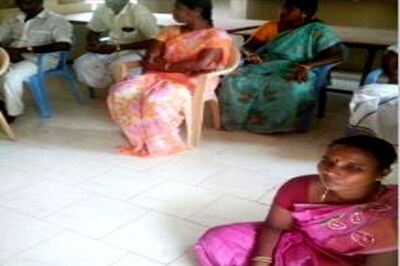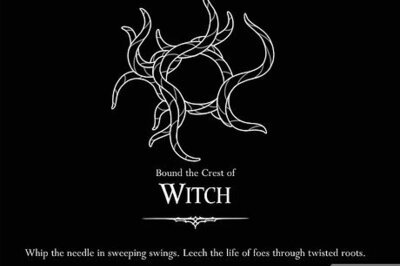
views
In Coastal Karnataka, the Yakshagana season, a traditional form of theatre, spans a brief six months from November to May. During the rainy months, artists face a scarcity of livelihood and this led to the creation of the Chikkamela, meaning a mini mela or troupe. Comprising two or three artists and musicians, Chikkamela troupes travel from house to house, delivering indoor performances rooted in Yakshagana texts and deeply connected to the art form’s folk origins.
With the end of the rainy season and the advent of Diwali, the special ritual of Chikkamela has commenced across the state. In Kalasa, Chikkamagluru, Yakshagana artists are now performing door-to-door, presenting a 40-minute act.
Sudhakar, the proprietor of Sudhas Cafe in Kalasa, has taken the initiative to organise a Chikkamela in front of his establishment, aiming to promote the art form and sustain the cultural tradition. The show is budget-friendly, with seat prices ranging from Rs 500 to Rs 5,000 for customers visiting the café. This year’s performance, by Katilu Kshetra Mahatme, depicted Sri Rama Pattabhishekam. Proceeds from the event will contribute to the restoration of the village temple and support the artists.
Typically commencing in the evening and concluding around 10pm, Chikkamela performances follow a unique process. Artists distribute request letters in the morning, and interested households invite them to perform. If a family requests a specific segment of the story, the artists enact it, provided the Bhagavatam (narrator) is familiar with that part of the prasanga (story).
Chikkamela troupes embark on tours from July to September, allowing young artists to gain exposure to the intricate nuances of Yakshagana performance. The initiative not only serves as a means of livelihood for artists during the off-season but also promotes and preserves the rich cultural heritage embedded in Yakshagana.




















Comments
0 comment